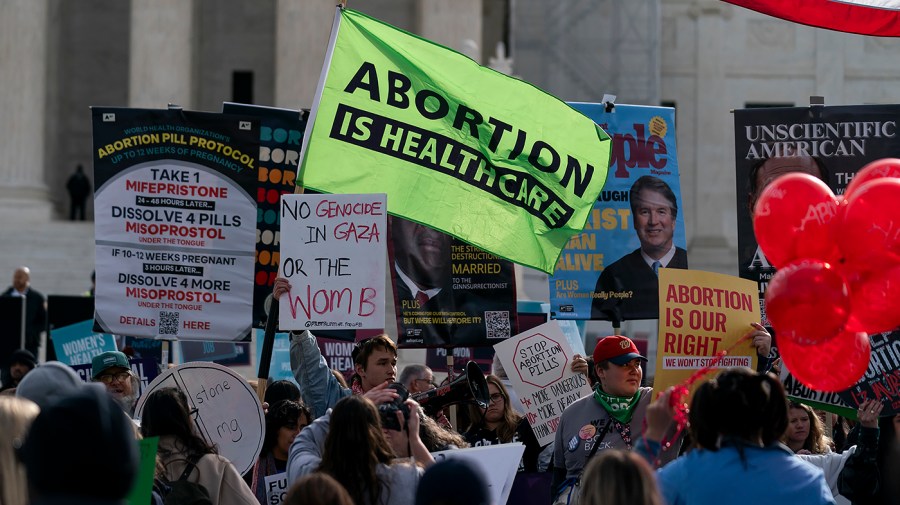The state Supreme Court in Arizona recently upheld a law from 1864 that makes performing an abortion a felony, essentially making abortion almost entirely illegal in the state. The decision came after a 4-2 ruling rejecting arguments to uphold a 15-week abortion ban passed in 2022 after the end of Roe v. Wade. Instead, the court decided to enforce the Civil War-era law, which includes penalties of two to five years in prison for those involved in performing or aiding in obtaining an abortion. The only exception is when the procedure is necessary to save the pregnant person’s life.
Attorney General Kris Mayes criticized the decision, calling it unconscionable and a threat to the health and lives of Arizonans. The White House also condemned the ruling, stating that millions of Arizonans will be living under an extreme abortion ban that fails to protect women in cases where their health is at risk or in instances of rape or incest. President Biden attributed the decision to the extreme agenda of Republican officials committed to restricting women’s reproductive rights. Voters will have the opportunity to remove the restrictions through a ballot measure in November.
Abortion rights advocates have expressed concern over the ruling, fearing the impact it will have on women’s access to safe and legal abortion care. The decision to enforce a decades-old law that criminalizes abortion represents a significant setback for reproductive rights in Arizona. Despite efforts by advocates to protect access to abortion, the Supreme Court’s decision demonstrates the ongoing challenges faced in the fight for reproductive justice.
The ruling in Arizona highlights the intensifying battle over abortion rights in states across the country following the overturning of Roe v. Wade. The decision to uphold a law from 1864 underscores the complex and contentious nature of the debate surrounding reproductive rights. The enforcement of such a restrictive law will have far-reaching implications for women in Arizona and could set a dangerous precedent for other states seeking to limit access to abortion.
The decision by the Arizona Supreme Court is likely to have a significant impact on the reproductive rights landscape in the state, as well as the broader national conversation surrounding abortion access. The ruling represents a victory for anti-abortion advocates who have long sought to restrict access to reproductive healthcare. As the legal landscape surrounding abortion continues to evolve, it is more important than ever for advocates to mobilize and fight for the protection of women’s reproductive rights.
In light of the Arizona Supreme Court ruling, it is clear that the fight for reproductive rights is far from over. The decision to uphold a law from 1864 that criminalizes abortion underscores the ongoing challenges faced by advocates in protecting access to safe and legal reproductive healthcare. As the battle over abortion rights continues to unfold in states across the country, it is essential for advocates to remain vigilant in defending women’s rights to make decisions about their own bodies. The enforcement of such restrictive abortion laws represents a significant threat to women’s health and autonomy, and it is crucial for advocates to continue fighting for the protection of reproductive rights for all.


